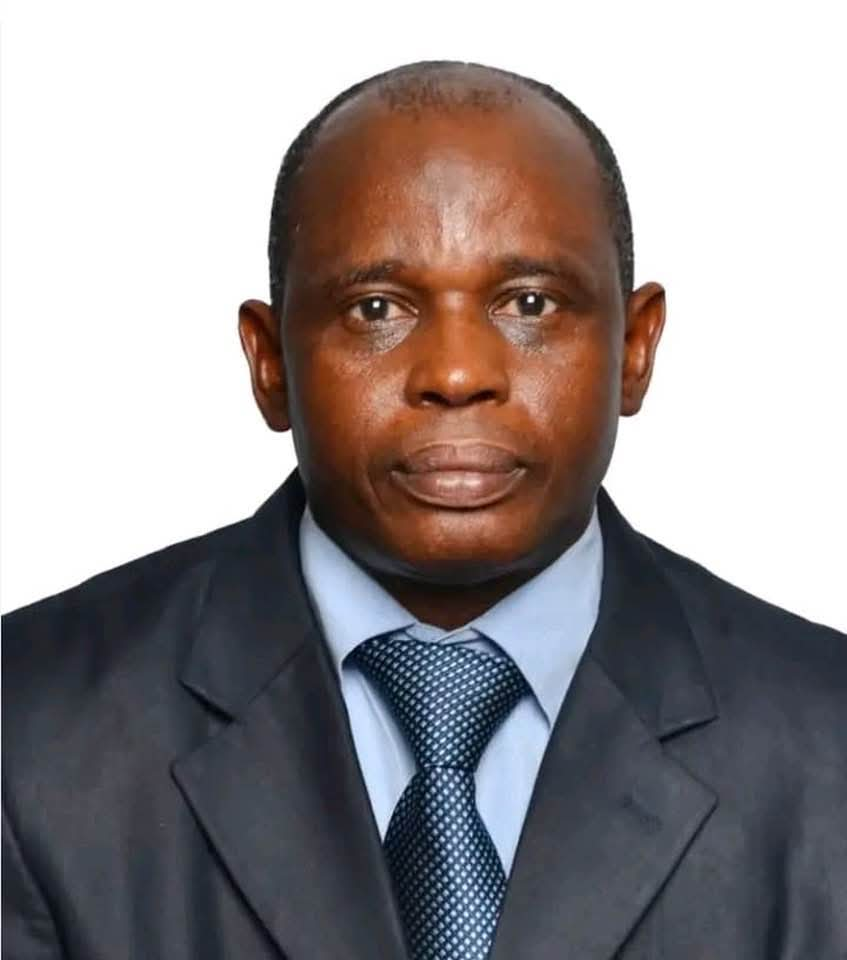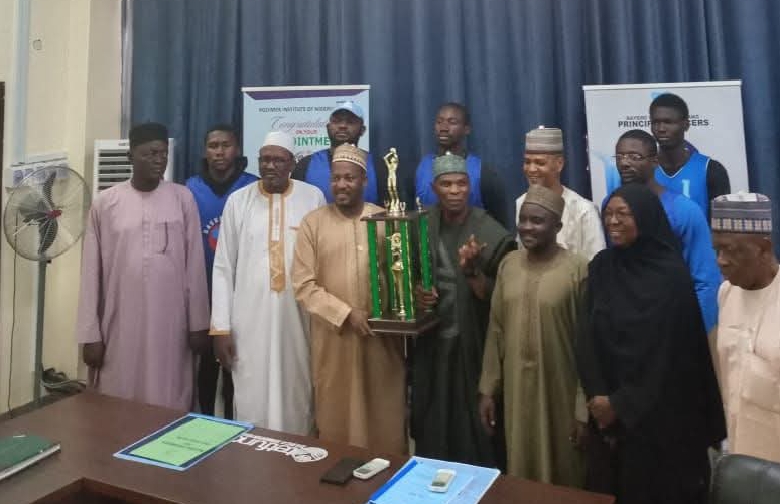News
NCC moves to strengthen colocation, infrastructure sharing market segment

Nasiru Yusuf
The Nigerian Communications Commission (NCC) has commenced the process of conducting a study to assess the current level of competition in the colocation and infrastructure sharing (CIS) segment of the Nigerian telecommunications sector. Seventy-eight licensees are currently operating in that market segment.
KANO FOCUS reports that the study is to enable the Commission to have insightful and evidenced-based facts to glean the dynamics at play and ensure the continuous growth of the CIS segment of the telecom market.
The NCC takes this issue as priority in view of the critical role played by the colocation and infrastructure sharing segment of the telecom ecosystem in ensuring robust services.
Already, the Commission has engaged the services of Messrs. Price Waterhouse Cooper (PwC), one of the world’s reputable consulting firms, to conduct the study on its behalf, in exercise of NCC’s regulatory functions as provided in the Nigerian Communications Act (NCA), 2003.

The study is expected to be concluded between April and July, 2022.
Speaking at the NCC’s stakeholders’ forum recently organised in Lagos on the commencement of the study, the Director, Policy, Competition and Economy Analysis (PCEA) at NCC, Yetunde Akinloye, who represented the Executive Vice Chairman of the Commission, Prof. Umar Garba Danbatta, said the forum was hosted to intimate operators in the CIS segment of the telecom market on the study and to secure their buy-in and cooperation with the consultants undertaking the study.

Yetunde Akinloye
Akinloye reasoned that, in line with its mandate of creating an enabling environment for competition among operators in the industry as well as ensuring the provision of qualitative and efficient telecommunications services, the NCC periodically conducts studies to assess the level of competition in the industry.
“Having successfully conducted competition assessment studies in 2005, 2010 and 2013, the Commission had issued determinations based on the findings of the studies while outcome of such studies has also enabled the Commission to come up with various regulatory interventions and initiatives to continuously provide a level-playing field for the interplay of market forces.
“These procedures are emplaced by the Commission to ensure fair, efficient and sustainable competition in the Nigerian telecom industry,” Akinloye said.
Despite the measurable progress made by the Commission, Akinloye stated that, since the successful completion of the 2013 study, there had been significant development and activities in some market segments of the industry that had necessitated the conduct of another competition study.
For instance, at the time the 2013 study was conducted, the CIS market segment was still at embryonic stage and as such, much emphasis was not placed on it.
However, “The CIS segment has recorded significant growth and transformation over the years having about 80 licensees, operating in the segment while its performance and activities continue to impact significantly on other segments of the Nigerian industry.
The Director PCEA also informed that activities in the CIS market has also attained the targets set out in the Nigerian National Broadband Plan (2020-2025)”.
Akinloye further declared that the overarching objective of the study is to provide current insights into the level of competition in the CIS market segment and articulate strategies to enhance opportunities in the market, as well as ensure the deepening of competition which will ultimately support the provision of innovative services for the benefits of both market players and the consumers at large.
“Therefore, in line with NCC’s participatory approach to regulation, this initial stakeholders forum has been convened to formally introduce the project and the appointed consultants to the industry”.
Akinloye informed participants and asserted that the forum provides opportunities for stakeholders to gain an understanding into the objective, scope and methodology of the study, as well as to ensure that questionnaire or Request for Information (RFI) developed by the consultants to access the level of competition in the market are well understood.
Thus, Akinloye rallied the stakeholders to see the forum as an opportunity “to seek and receive clarification based on presentation delivered by the consultant and to make comments on issues relating to the study.
She urged all participants to “commit to the objectives of the study, by providing complete, timely feedback to questionnaires.”
Director, Technical Standards and Network Integrity at NCC, Bako Wakil, also joined Akinloye in seeking the full cooperation of licensees in the CIS segment of the telecom market whenever they are approached by the consultants for relevant information either through the instrumentality of the RFI or through one-on-one sessions with consultants in the course of the implementation of the study.
According to Wakil, the study is in the interest of the CIS licensees, other players and the consumers. It will also provide the Commission with useful and evidenced-based insights necessary to ensure healthy competition and a level-playing ground in the CIS segment and ensure sustainability in the growth of the telecommunication industry.
“Also, rest assured of the confidentiality of any information provided to the Commission in the course of this study, no matter how sensitive,” Bako said to the enthusiastic audience.
Earlier in her presentation to telecom stakeholders at the event, Partner at PwC, Mary Iwelumo, amplified the voice of the Commission on the objectives of the study and urged them to cooperate with the firm in providing accurate, timely and adequate responses to the RFI or the questionnaire that would be administered. This will ensure that appropriate information are to obtained to address the challenges in the sector.
Iwelumo stated that the study is to analyse the structure and operations of the collocation and infrastructure sharing segment of the telecoms market, draw out insights and advise the Commission on necessary regulatory interventions required.
Iwelumo further listed three major tasks of PwC in the execution of the study to include: gathering data, reviewing and analysing information that would be sourced from the Commission, the operators, other jurisdictions for benchmarking; engaging identified stakeholders to get feedback and suggestions after the completion of market assessment; and finally to make recommendations and prepare the study report.
“Operators are very critical to the success of the study. Therefore, they would be involved in this critical assignment, as important sources of information, as provider of technical inputs, and finally, help to validate the findings of the study,” Iwelumo said to underscore the role of operators in the study.

Headlines
Gov. Yusuf mourns former Kano finance commissioner, Prof. Dandago

Nasiru Yusuf Ibrahim
Governor Abba Kabir Yusuf has expressed deep sorrow over the death of former Kano State Commissioner of Finance and renowned academic, Professor Kabiru Isa Dandago.

KANO FOCUS reports that the governor’s reaction was contained in a statement issued on Wednesday by his spokesperson, Sunusi Bature Dawakin Tofa, Director General, Media and Publicity, Government House, Kano.
Governor Yusuf described the late Prof. Dandago as a dedicated public servant and accomplished scholar whose contributions to education and governance left lasting footprints in Kano State.
He noted that the former finance commissioner served the state with integrity and commitment and was widely respected for his professionalism, humility and passion for knowledge.
According to the governor, Kano State has lost a valuable son whose experience and wisdom greatly enriched both public service and the academic community.
Governor Yusuf extended his heartfelt condolences to the family of the deceased, the academic community and the people of Kano State over what he described as an irreparable loss.
He prayed that Almighty Allah forgives the shortcomings of the late Prof. Dandago, grants him Aljannatul Firdaus and gives his family and loved ones the fortitude to bear the loss.

Headlines
GATCOSA President, Prof. Kabiru Isa Dandago is dead

Nasiru Yusuf Ibrahim
The National President of the Government Arabic Teachers College Gwale Old Students Association (GATCOSA), Professor Kabiru Isa Dandago, is dead.
KANO FOCUS reports that Prof. Dandago, a renowned Professor of Accountancy at Bayero University Kano, died on Wednesday evening. His passing has thrown the academic community and associates into mourning.
In a message shared on GATCOSA’s WhatsApp platform, a Director at the Kano State Ministry of Higher Education, Alhaji Nura Dandago, announced that the funeral prayer for the late professor would be held on Thursday at 9:00 a.m. at his residence in Rijiyar Zaki Quarters, Kano.

Until his death, Prof. Dandago served as the National President of GATCOSA and was widely respected for his contributions to education and public service. He previously served as Commissioner for Finance in Kano State during the administration of former Governor Abdullahi Umar Ganduje.
Just last Saturday, the late academic presented a paper on economic challenges in Northern Nigeria at a Ramadan Lecture organised by the Islamic Forum of Nigeria, where he spoke passionately about strategies for economic reform and regional development.
Colleagues and admirers described Prof. Dandago as a dedicated scholar and public servant who was deeply committed to building a prosperous and self-reliant nation. His death marks the end of a distinguished career in academia and public service.

Headlines
BUK clinches Northwest 3×3 basketball title at ABU Zaria

Nasiru Yusuf Ibrahim
The basketball team of Bayero University Kano (BUK) has emerged champions of the Northwest 3×3 Basketball Championship hosted by Ahmadu Bello University (ABU), Zaria.

KANO FOCUS reports that the victorious team presented the championship trophy to the Vice-Chancellor, Prof. Haruna Musa, following their impressive performance at the tournament, which featured six universities from across Northern Nigeria.
BUK went unbeaten throughout the competition, winning all six matches and sealing the title with a thrilling 20–18 victory over the host institution, ABU Zaria, in the final.
In the group stage, BUK recorded a 10–0 win against Northwest University, Kano, and defeated the Air Force Institute of Technology 33–20. The team also edged the Federal University of Education, Kano, 11–9, before securing another dominant 10–0 victory over the Federal University of Transportation, Daura. They capped their remarkable run with the narrow 20–18 triumph in the final.
The victory marks BUK’s second championship title in the history of the competition, reinforcing the university’s growing reputation in collegiate sports.
Receiving the team, the Vice-Chancellor congratulated the athletes for bringing pride to the institution and urged them to sustain and surpass their current achievements. He reaffirmed the management’s commitment to strengthening sports development in the university and pledged continued institutional and individual support for the players’ sporting careers.
The presentation ceremony concluded with the formal handover of the trophy and cash rewards to the athletes in recognition of their discipline, teamwork and excellence.











